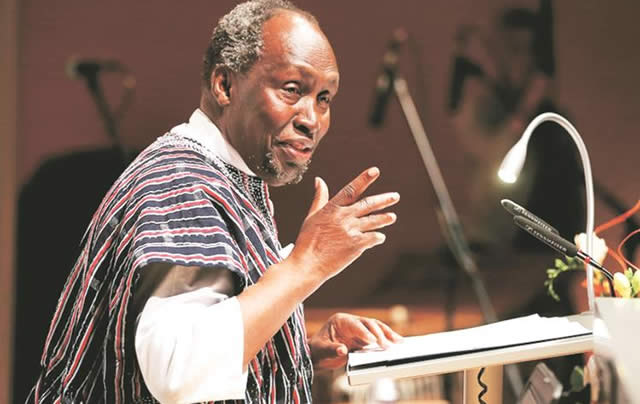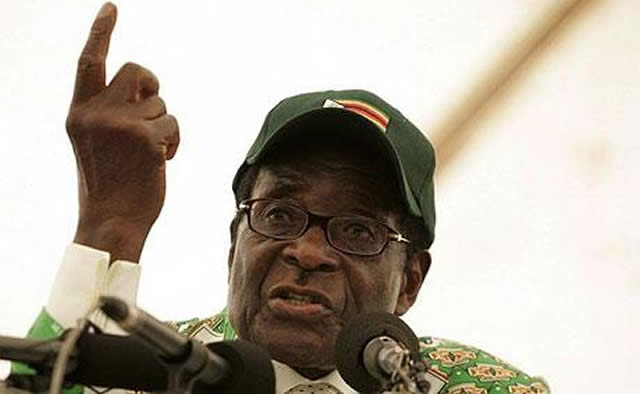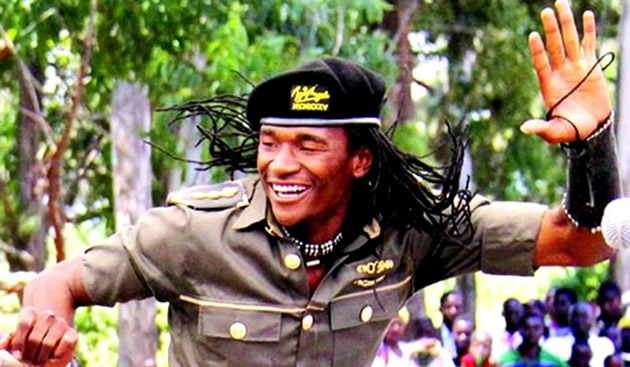Pan-Africanism and mercenaries of global capital

Stanely Mushava Literature Today
Africa is a site of conflicting narratives. In recent times, contradictions have orbited around the development question. There is growing optimism that Africa is rising, with statistics pointing to the continent as the fastest growing region. The “Africa Rising” narrative has brokered unusual consensus between pan-Africanists and global media echo chambers. Africa has posted upbeat figures in recent years, essentially good news for a continent traditionally assigned to the backyard of civilisation.
The narrative is deemed a dragnet for much-needed investment.
It also signifies a time of defrocking stereotypes and self-actualising.
However, dissent is swelling against the “Africa Rising” narrative, not so much from pessimism but realism; not rejection but consolidation.
While the numeric surge cannot be gainsaid, the sceptics want to know whether Africa is rising with the rest of us and for the rest of us.
Or whether it is for the wafer-thin contingent of the political and corporate middle class. Perhaps, it is time to give careful consideration to this other side of the table.
Aside the figures, “Looking at faces of the people, one gets the feeling that there is a lot of work to be done,” as Wole Soyinka puts it.
The “Africa Rising” narrative presupposes better days for the continent as more economies record an ascendant trajectory.
But for sceptics, an assessment which interprets growth in terms of macro-economic indices not the conditions in which the people find themselves is either insufficient or oversimplified.
Inequality is one variable that has been disingenuously left out of the narrative. Factor that in and a whole new discourse unravels.
Ngugi wa Thiong’o, the long-time critic of the home-grown contingent of global capitalism, is on point with respect to the problem of slanted development.
He observes the need for deliberate policies to promote income and asset equity, facilitate human development and social inclusion.
Equally key in the quest for even development is the sharing of political power and access to the benefits of national resources required to tackle inequalities and promote real transformation.
“We all urge a legitimate and capable developmental State to drive this policy renewal to tackle inequalities and promote such people-centered transformation of our societies and economies,” Ngugi says in his brilliant “African Identities” article.
With seven out of 10 countries more unequal than they were 30 years ago, while the richest 85 people own the same wealth as the poorest 3.5 billion, as Yvonne Omwodo points out, there are clearly major questions to be grappled with.
“Many policies and rules have long been rigged in favour of a wealthy elite and this will continue to happen if we don’t act now,” notes Omwodo.
It is pertinent not just to probe the “African Rising” mantra but also Pan-Africanism in its current form to establish whether it still serves as a people-oriented and socially significant force or as a fetish of sentimental value and no real utility.
Pan-Africanism needs to be adapted to the genuine needs of the people if it is to reclaim its formative mojo and re-engage with increasingly politically detached Africans.
There is a place for Africa in the future if development is streamlined to accommodate everyone.
Pan-Africanism must validate its existence by being relevant to current challenges and chanting down social injustice not just internationally but also locally where the class differences are becoming more starkly defined.
Of note is the fact that Pan-Africanism today faces a different array of problems, or rather vastly updated problems of the same nature, set against the ones it confronted on inception.
Whereas Pan-Africanism originally fermented against slavery and segregation and reached high tide at decolonisation, it now faces new problems such as globalisation (global capitalism), neo-colonialism, ethnic attrition and inequality between the political and corporate elites and the masses in the post-colonial state.
It is expedient that Pan-Africanism be revitalised, broadened and updated to meet these new challenges.
The Pan-African Conference on Inequalities Bulletin articulates the challenge: “Inequality is a critical and defining challenge for Africa.
“The recent experience in most African countries reveals that while growth has been remarkable over the last decade it has occurred alongside limited decent job opportunities and stark inequalities in income, wealth and access to social services.
“In many countries, the current growth pattern has actually increased the dependence on the export of primary commodities and minerals and often led to premature de-industrialisation and stagnation of agricultural productivity.
“The growth in African demand has, therefore, often translated in increased import of food and manufactured products and the virtual export of African jobs and human capabilities. Furthermore, trends of decreasing African ownership of its assets as well as shirking retention of the benefits of its growth are of great concern and speak to the heart of the global inequality problem.”
Ngugi characterises globalisation in its current form as a form of fundamentalism, fundamentalism being insistence on one way of organising reality.
For him, globalisation calls for the worship of the market, with the common credo of privatisation.
He observes that nations that deviate from the ordained path, for example, by questioning “aid” conditionality, failing to privatise public enterprises and introducing narrowly defined forms of liberal democracy, faces anathemisation and punishment by the global capitalist powerhouses.
Ray Bush also faults the rhetoric of modernist development and the “Africa rising” which he describes as one more self-serving and patronising script from the West.
Bush notes, to the contrary, that globalisation has transformed states in Africa, reducing their economic and political independence. Neoliberal globalisation grows one part of the world on the back of other parts under the banner of a global free market.
Bush short-circuits neoliberalism as the systematic use of state power to impose market imperatives through a domestic process that is replicated internationally.
“Globalisation brings poverty and inequality to Africa as a result of the continent’s uneven incorporation into the world economy.
“The main hope for the future is not free trade, open markets and technological gains; rather, it is resistance to the impact of globalisation by workers and peasants, and the construction by Africans themselves of an alternative future,” he observes.
Africa continues to play a subjugated role in the situation, pandering to the interests of global capital.
Ngugi observes in the deepening discrepancy between the have and have-not conditions of an increasingly globalised world a foundation for new types of authoritarianism which he says may also provoke fundamentalisms in alliance or in opposition to capitalist fundamentalism.
“Unfortunately, Africa fares the worst, despite or because of the fact that Africa has always been a player in the development of the modern capitalist world. Under the slave trade, the African body is commodified.
“Under the slave plantation system, Africa supplies unpaid labour that works the sugar and cotton fields. Under colonialism, Africa supplies raw materials — gold, diamonds, copper, uranium, coffee, cocoa —without having control over the prices.
“Under the new global situation of debts, debt servicing, and conditionalities, Africa becomes a net exporter of the very capital it most needs. Africa, the largest continent on the globe, endowed with all the resources of nature, becomes the land most bowed down by the man-wrought ills of poverty, disease, and ignorance,” Ngugi laments.
The nationalist middle class which took over the state at independence has changed its relationship with the people.
Ngugi observes the group has refused to see that its power does not come from its ownership of the levers of the economy, as they are still owned by the global capital. He incriminates it for behaving as if its new power comes from its cosy relationship with imperialism.
This spells colossal implications for Pan-Africanism which emerged as an alliance between this class and the people against social injustice, seeing that the former has ganged up with global capital against the people.
Stanely Mushava blogs at afrospection.blogspot.com







Comments